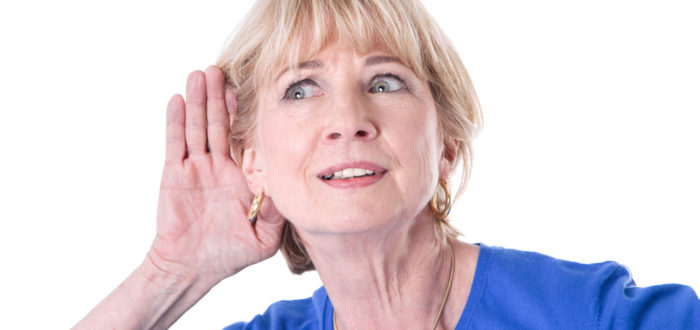Hearing loss can seem an inevitable part of aging. The NIDCD have found that approximately one in three people between the ages of 65 and 74 has hearing loss, and nearly half of those 75+ have difficulty hearing.
So does that mean that hearing loss is just a part of getting older?
Age related hearing loss is known as Presbycusis. It does not have to be something you just accept as you get older. Let’s look at the causes and what you can do to look after your hearing health.
What is Presbycusis?
Presbycusis, or age related hearing loss, is a gradual process. It tends to occur in both ears equally. Often the individual won’t realize they have it until it’s quite severe.
Age related hearing loss is typically caused by changes to the inner or middle ear, or to the nerve pathways. But common age related medical conditions such as diabetes and blood pressure can be a factor. In some cases, medication can contribute to the hearing loss.
It’s also difficult to distinguish presbycusis from noise induced hearing loss. In fact, it’s common for a combination of these factors to be the cause.
This type of hearing loss can make it difficult to hear certain letter sounds and frequencies which makes spending time with others challenging. But isolation may lead to depression. Presbycusis seems to run in families so watch for these symptoms:
- Avoiding talking on the telephone or struggling to hear on the phone.
- Struggling to follow in group conversations.
- Frequently asking to repeat what’s been said
- Others mention how loud the television or music volume is
- Background noise is very distracting
- People seem to mumble often
- Women and children’s voices are particularly hard to understand
How Can You Lessen the Risks of Presbycusis?
There’s plenty you can do to lessen the risks of presbycusis:
- Eat foods rich in vitamins, minerals and antioxidants. Try and make a rainbow on your plate at every meal!
- Exercise regularly to improve blood flow and cardiovascular performance. This will keep plenty of much-needed oxygen flowing to the cells in your ears.
- Limit exposure to loud noises. If you know that you’re going to be in a loud environment, consider using hearing protection.
- Have regular hearing checks so that any changes to your hearing are noticed as soon as possible, and any ear wax blockages can be addressed.
- Use your hearing aids.
- Cut down or quit smoking, as this has both health implications and links to hearing loss.
Contact Us Today!
If you recognize any of the above symptoms, we recommend booking in a hearing assessment with your local hearing care professional. Book an appointment with the Hearing, Balance & Speech Center team by calling (203) 208-3678 or request an appointment online.

